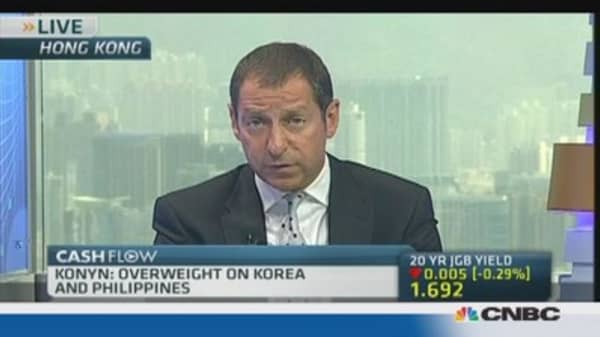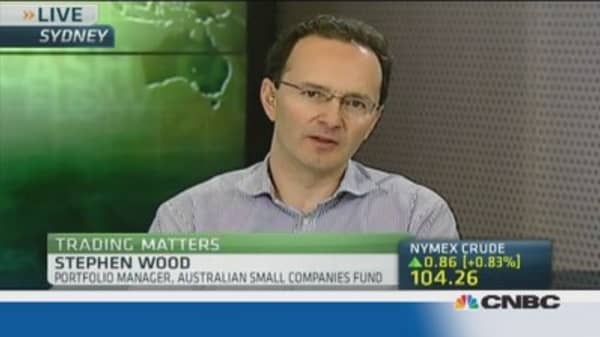On a less bright note, consumer prices were unchanged from the previous month and producer prices fell an annual 2.3 percent.
"More spending is called for, while further acceleration in credit growth is discouraged. This approach requires significant improvement in capital allocation efficiency to work. There is no quick magic, and so patience and tolerance is still required," said analysts at SG Global Economics in a research note.
Shanghai above 2,050
China's benchmark stock index erased earlier losses after sinking to a one-week low of 2,030 points as investors digested the latest economic data.
"The key point is the deflation in the PPI, which speaks to the capacity in industry and that, in turn, reflects one of the structural vulnerabilities in the economy," said Andrew Colquhoun, senior director and head of Asia-Pacific sovereign ratings at Fitch Ratings. "We think over-investment in the past is driving this deflation in the PPI," he added.
Gains in commodity stocks pushed the index into positive territory. Rare-Earth surged 10 percent and Zijin Mining rose 3.7 percent.
Nikkei flat
A marginally weaker yen helped Japan's benchmark index rebound from the previous day's one-month low. Dollar-yen traded at the 96.60 handle after hitting a new seven-week low overnight. The currency pair has lost over 3 percent since rising to 99.9 last week.
Materials and industrial exporters led the recovery. Metals firm Mitsubishi Materials jumped 10 percent while truck maker Isuzu Motors rallied 2.4 percent. Index heavyweight Softbank rose 1 percent on reports that the wireless carrier could be raising the biggest syndicated loan in the Asian region.
(Read more: Why the Bank of Japan is right to stay 'passive')
Camera maker Nikon slumped over 14 percent after reporting a 72 percent net-profit slump in the April-to-June quarter due to a steep fall in sales.




